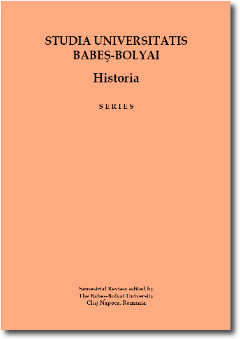Constructing Socialism at "Tehnofrig". A social history case-study into the ethnic structure of the Cluj workforce during the mid-1960s
Keywords:
urban centre, rural area, ethnicity, education, gender, migration.Abstract
The advent of the Communist regime in Romania led to great social and economic transformation with immense consequences for the population. For a poorly developed country the insistence of heavy industry growth led to the development of its urban centres, and of the surrounding rural areas. Cluj's fate during the 1960s was no different as it represents a perfect example of these changes. The following paper looks at how complex said transformations took place in terms of ethnicity, education, gender, and migration by emphasizing the example of the "Tehnofrig" factory. The first part is an attempt at explaining the relation between ethnicity and skill by observing the dynamic between traditional work ethics and the numerical report of Hungarians and Romanians. The second part marks a look at links between age/ generations and education. The third part stems from gender studies and is focused on the limited entrance women got in the 1960s in skilled positions. Finally, understanding migrational patterns between periphery and centre is essential to explaining how the ethnic balance change, and how this marked not only the evolution of Cluj's urban landscape, but also work ethics.
Downloads
Published
How to Cite
Issue
Section
License
Copyright (c) 2015 Studia Universitatis Babeș-Bolyai Historia

This work is licensed under a Creative Commons Attribution-NonCommercial-NoDerivatives 4.0 International License.






